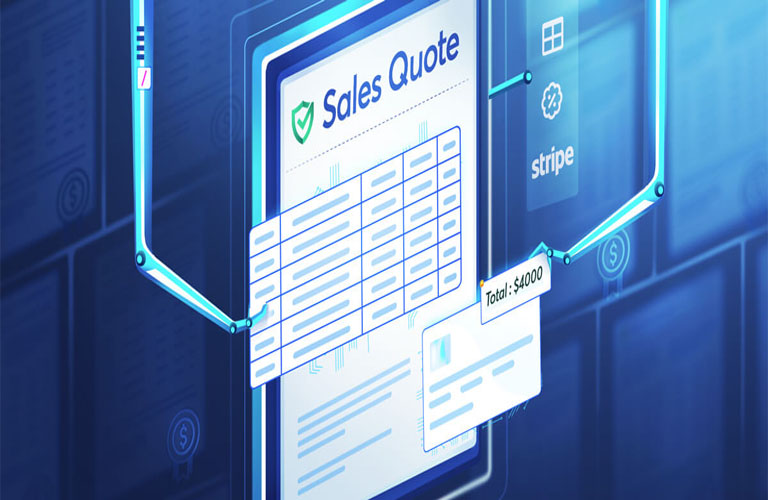
In todays business environment it is essential for companies to customize their products and services to meet the needs and preferences of individual customers. Tailoring offerings to suit customers specific requirements has become a strategy, for businesses aiming to stand out establish customer connections and boost sales. This article discusses the importance of customization and personalization in quoting processes examining their impact on customer experiences, sales effectiveness and overall business success.
1. Exploring Customization and Personalization
Before delving into their significance in quotes it is important to distinguish between customization and personalization;
Customization; This involves giving customers the ability to select features, options, configurations or variations of products or services that align with their needs. It enables customers to personalize offerings based on their preferences budget constraints, intended use and specific requirements.
Personalization; Taking it a step further involves using customer data such as behavior patterns, demographics, past interactions and preferences to craft targeted experiences. This entails providing recommendations and tailored offerings that resonate with each customer individually.
Both customization and personalization are elements, in quoting processes as they influence how businesses interact with customers, showcase products/services and drive conversions.
2. The significance of Personalization, in Online Price Quotes
Personalization in price quotes brings advantages to both businesses and customers
Addressing Individual Needs; Each customer is unique with diverse needs, preferences and limitations. Tailored price quotes allow businesses to effectively cater to these requirements providing customized solutions that match the customers particular circumstances.
Diversity; Personalization offers adaptability and diversity in pricing, packaging, features and conditions. Customers can select options that best fit their budgets, usage habits, timelines and expectations leading to increased satisfaction and perceived value.
Setting Apart from Competitors; By providing options businesses can distinguish themselves from rivals who offer solutions. Personalization becomes a service that differentiates businesses and attracts customers looking for experiences.
Opportunities for Sales; Personalization creates opportunities for sales. Businesses can propose products or enhancements during the personalization process boosting the order value and revenue potential.
Empowering Customers; Personalization empowers customers to actively shape their purchases. It promotes transparency, trustworthiness and interaction as customers believe they have a say, in the offering. Making them more inclined to make a purchase tailored to their needs.
The Importance of Personalization, in Online Quotes
Personalization goes beyond customization by using data and insights to create experiences
Insights from Data; Personalization relies on data like purchase history, browsing habits, demographic details, preferences and interactions. Analyzing this information helps companies understand each customers needs, preferences, challenges and purchasing behaviors.
Customized Recommendations; Through personalization businesses can offer tailored product suggestions, pricing choices, packages and deals based on customer profiles. These personalized recommendations enhance relevance, levels and conversion rates.
Flexible Pricing; Strategies like pricing or personalized discounts can be implemented based on factors such as customer loyalty, purchase frequency order volume or specific customer segments. This strategy boosts the perceived value of products/services and encourages purchases.
Targeted Communication; Personalized messages and content resonate better with customers. By addressing customers by name acknowledging their preferences and highlighting benefits or features in quotes creates a personalized and captivating quoting experience for businesses.
Engagement at Different Buying Stages; Personalization takes into account where customersre, in their purchasing journey. For prospects customized quotes may focus on value propositions or introductory offers. For existing customers quotes might emphasize loyalty rewards. Upgrade options to encourage repeat business.
To effectively incorporate customization and personalization into quotes businesses can utilize the following approaches;
1. Customer Profiling; Develop customer profiles that encompass demographics, behaviors, preferences, purchase history, interactions and feedback. Utilize analytics. Crm systems to collect and analyze data, for tailored insights.
2. Segmentation; Divide customers based on shared characteristics, behaviors, needs or stages in their lifecycle. Create quote templates, pricing models and offerings for each segment to boost relevance and engagement.
3. Interactive Quoting Tools; Invest, in quoting features within your quoting platform. These tools enable customers to choose options, customize products view real time pricing details and observe how modifications affect the quote. This interactive element enhances the customization process.
4. Dynamic Pricing Mechanisms; Deploy dynamic pricing mechanisms that adjust prices according to demand fluctuations inventory levels, customer segments, competitive factors or specific circumstances. Tailored pricing structures can optimize revenue generation while meeting customer expectations.
5. AI and Machine Learning; Harness AI and machine learning algorithms to analyze customer data comprehensively forecast buying patterns suggest personalized offerings,
optimize pricing tactics, and automate quote generation based on predefined rules and patterns.
Personalized Suggestions; Include personalized product recommendations, suggestions, for purchases relevant content, customer testimonials, success stories and social proof in your quotes. Emphasize the advantages that match each customers requirements and challenges.
Instant Notifications; Keep customers updated in time with notifications while they receive quotes. Inform them about any updates, discounts, special offers, limited time deals or new options that could be relevant to their quote. Create a sense of urgency and anticipation.
5. Advantages and Results of Tailoring and Personalizing
Implementing customization and personalization in quotes successfully leads to benefits and outcomes
Higher Conversion Rates; Customized and personalized quotes resonate better with customers resulting in increased conversion rates. Relevant offerings, targeted messages and personalized pricing boost the chances of customers making a purchase.
Enhanced Customer Satisfaction; Customers value tailored solutions that cater to their needs. Customization and personalization show that businesses understand their preferences leading to satisfaction levels and repeat business.
Increased Average Order Value; Personalized suggestions, for purchases cross selling opportunities and dynamic pricing strategies contribute to average order values. Customers are more likely to add products or upgrade to premium options when presented with choices.
Building Stronger Customer Loyalty; Offering experiences helps create emotional connections and stronger loyalty, from customers. This in turn leads to lasting relationships, repeat business, referrals and positive word of mouth.
Gaining a Competitive Edge; Businesses that excel in tailoring their products and services to preferences have an advantage. They stand out by providing customer experiences, innovative solutions and a profound understanding of customer desires.
Addressing Challenges and Considerations
While customization and personalization bring advantages businesses face challenges such as ensuring data privacy complying with regulations maintaining data accuracy obtaining customer consent addressing security issues and managing scalability. It is crucial to establish data governance practices implement data handling procedures maintain transparent privacy policies and adhere to compliance standards to ethically use customer data.
Moreover companies should consistently monitor customer feedback metrics, conversion rates and sales performance to enhance their customization strategies continually. By engaging in optimization efforts, like A/B testing and experimentation businesses can refine quoting processes for results.
